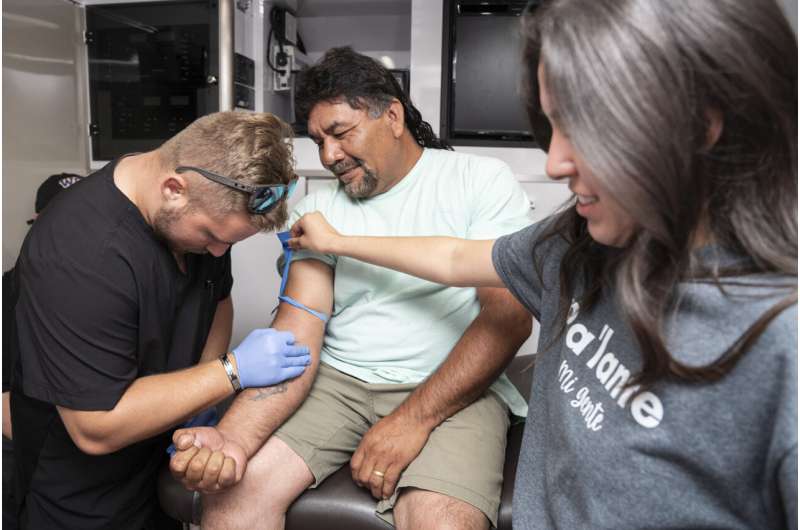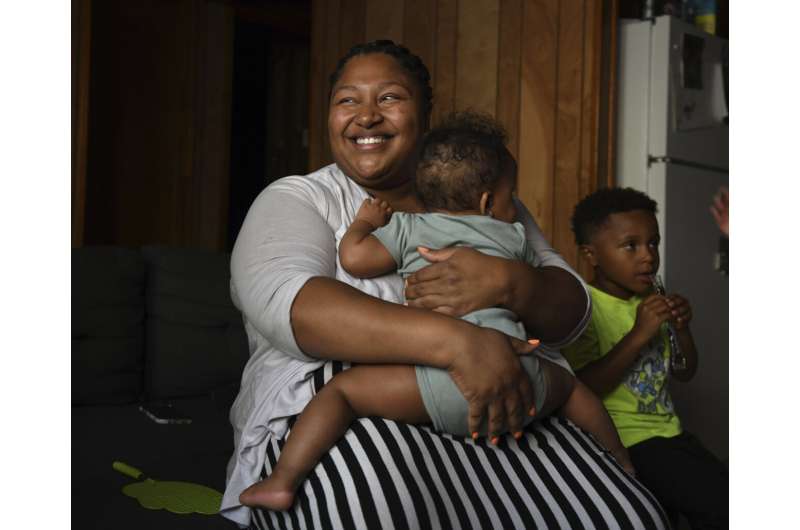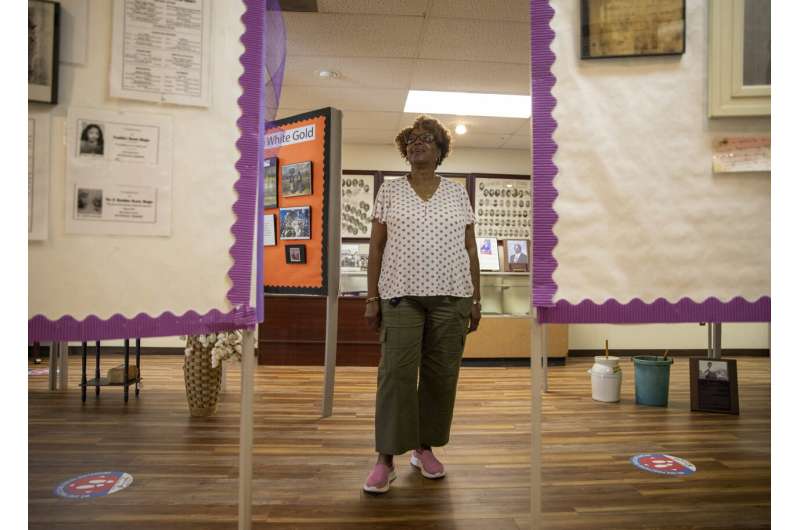This article has been reviewed according to Science X's editorial process and policies. Editors have highlighted the following attributes while ensuring the content's credibility:
fact-checked
reputable news agency
proofread
Rural communities of color across the US find new ways to get the health care they need

Haywood Park Community Hospital was the closest hospital for many in Brownsville, Tennessee, a rural city in the eastern part of the state.
Some residents believe it kept their loved ones alive. But others in this majority-Black city said they drove to a hospital miles away or skipped care completely. The facility eventually closed in 2014 after a decline in patients.
"Despite my ill feelings or experiences I had in that environment," said Alma Jean Thomas Carney, who described the hospital's white staff as unwelcoming, "you have indigent people living in Haywood County who need to get to the closest facility available."
It's more common for people in rural areas to die earlier than urban residents from things like heart disease, cancer and stroke, according to the Centers for Disease Control and Prevention. But hospitals have closed throughout rural America in the last decade, leaving some of the 46 million people who live in these areas fewer options to get the care they need when they need it.
Advocates, hospital and health clinic administrators and rural residents say changing disparities in health outcomes and health care services in rural America needs to start at the local level—especially in communities of color that may lack trust in the medical field.
It's already happening in Brownsville, where the hospital fully reopened in 2022; in North Carolina, where mobile clinics see farm laborers who lack permanent legal status after their work hours; and in California, where community health workers in the Fresno area go door to door to help Punjabi Sikh immigrants, who often work on farms or at meatpacking plants.
"We've learned that we have to go to people, we have to go to where they're at, they're not going to come to us," said Mandip Kaur, the health director of the nonprofit Jakara Movement.
More than one-third of the nation's rural hospitals—about 700—are at risk of closing because of "serious financial problems," according to a July analysis from the Center for Healthcare Quality and Payment Reform. Harold Miller, the center's president and CEO, said one hospital closure can ripple through a rural community.

"If the hospital didn't exist, there wouldn't be any physicians there," Miller said. "There is no place to go and get a lab test except for that hospital. There may be no nursing home or place to get rehab or long-term care other than these hospitals."
When a hospital does stay open in a large rural area where few people live, the facility may not see the number of patients it would need to see to be profitable, said Arrianna Planey, who researches health policy and management at the University of North Carolina.
Leaders in Brownsville tried to find a buyer for the hospital. The county eventually purchased it. Braden Health, a privately held company, then took over the hospital with two conditions from the county supervisors: It must be a full-service hospital with a 24-hour emergency room and staff had to be hired as quickly as possible. Local officials say the hospital is breaking even.
Tennessee is one of 10 states—many of them in the South—that haven't expanded Medicaid. Michael Meit, the director of East Tennessee State University's Center for Rural Health Research, believes doing so would be an obvious solution to the problem of growing rural health disparities. More people would be covered by insurance, Meit said, and hospitals could make more money.
"They're providing a lot of uncompensated care," he said of rural health systems in those states.
Miller acknowledged that Medicaid expansion can help, but argued that pinning hopes on that alone has "let the private insurance plans off the hook."
"In some cases, the small hospitals are losing more money on private insurance than they are on Medicaid, which is really kind of remarkable," he said, "but that's how little they get paid ... by the private insurance plans."
Low Medicaid reimbursements play a role in maternity wards closing in rural areas, along with worker shortages and declining birth rates. More than half of rural hospitals have stopped offering labor and delivery services, another recent analysis from the Center for Healthcare Quality and Payment Reform showed. That can lead to longer travel times and a higher risk of complications and death, and in the U.S., Black mothers have the highest rates of maternal mortality.

Alexis Ratliff, 29, had few options for maternity care when she was pregnant with her second child. There is no hospital in Rocky Mount, Virginia, and one about 40 minutes away closed in 2022. Ratliff, who is Black, instead went to Salem—more than an hour away—for every prenatal visit. She ran through all of her paid time off, and had no paid maternity leave.
She did, however, have a doula. The doula is Black and her services were covered by Medicaid—a benefit Virginia started offering in 2022.
"I really did want somebody else to just help advocate, especially since with women of color, the mortality rates are higher. So I was like, 'anything can happen,'" she said. "My family members never had good experiences up here at these doctors' offices, even just for regular appointments."
In the state to the South, immigration status can complicate health care. About 150,000 farmworkers and their family members live in North Carolina. Many of them speak Spanish, lack permanent legal status and don't qualify for Medicaid—so they'll pay out of pocket at clinics or go without medical care.
A few organizations in the state provide mobile health clinics. Campbell University's Community Care Clinic, in partnership with Sembrando Salud by NC FIELD did its first outreach in 2017 and diagnosed 68 people with diabetes. Four of them had very high blood sugar levels, said Dr. Joseph Cacioppo, a clinic volunteer, and chairman of the Community and Global Health program at Campbell.
"Three of them were lucky; there was minimal or no organ damage at the time we found them," he said, adding the fourth has kidney failure and liver damage "because he went so many years without knowing he was diabetic."
There's something else communities should strive for, too, said NORC Walsh Center for Rural Health Analysis director Alana Knudson: a positive attitude and outlook.
"It is not all dystopia," she said.
"I think we are really trying to change that narrative because this is the challenge: Who wants to come from an older, poorer, sicker area? It doesn't matter if you are from inner-city America or if you're from rural America," Knudson said. "Having that kind of a label does not bring out the best in how people feel about themselves."
© 2024 The Associated Press. All rights reserved. This material may not be published, broadcast, rewritten or redistributed without permission.





















